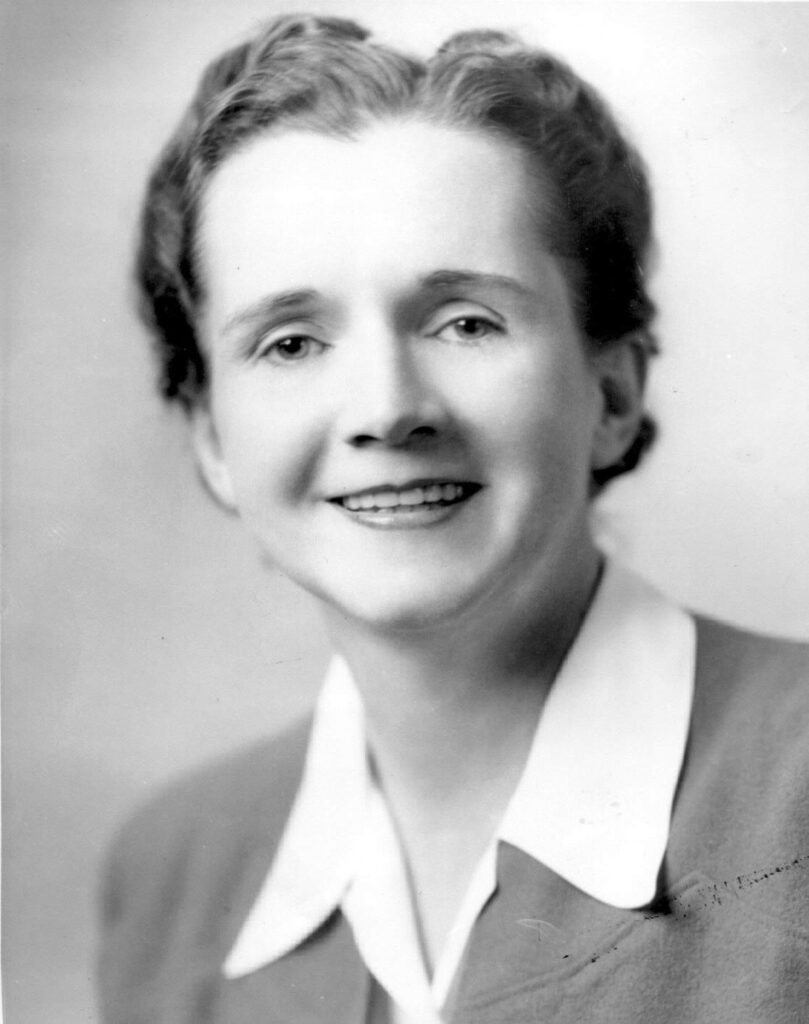a) Rachel Carson
Rachel Carson, the influential environmentalist and author of “Silent Spring,” published in 1962, played a pivotal role in launching the modern environmental movement. Her book raised awareness about the dangers of pesticides, particularly DDT, to wildlife and humans, challenging the practices of agricultural scientists and the government. Carson’s work led to a nationwide ban on DDT and inspired an ecological revolution, significantly impacting environmental policy. Her contributions have had a lasting effect on environmental awareness and policy.
“Silent Spring” was groundbreaking in its meticulous documentation of environmental harm caused by indiscriminate use of pesticides. Carson, a marine biologist by training, used her scientific background to detail how DDT entered the food chain and accumulated in the fatty tissues of animals, including humans, and caused cancer and genetic damage. A New York Times bestseller, the book stirred widespread public concern for the environment and public health and ultimately led to policy changes.
Carson faced significant opposition from chemical companies after the publication of her book, but she persevered, testifying before Congress in 1963 to advocate for new policies to protect human health and the environment. Her efforts were instrumental in the eventual ban of DDT in the United States in 1972 and spurred an increased global environmental consciousness.
Rachel Carson’s legacy is profound. Her work played a crucial role in the birth of the environmental movement, which led to the establishment of Earth Day and the founding of the Environmental Protection Agency (EPA). “Silent Spring” remains a seminal work in environmental literature, inspiring generations to advocate for a healthy and sustainable planet.

